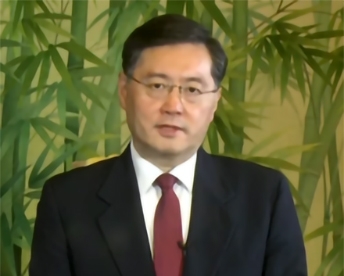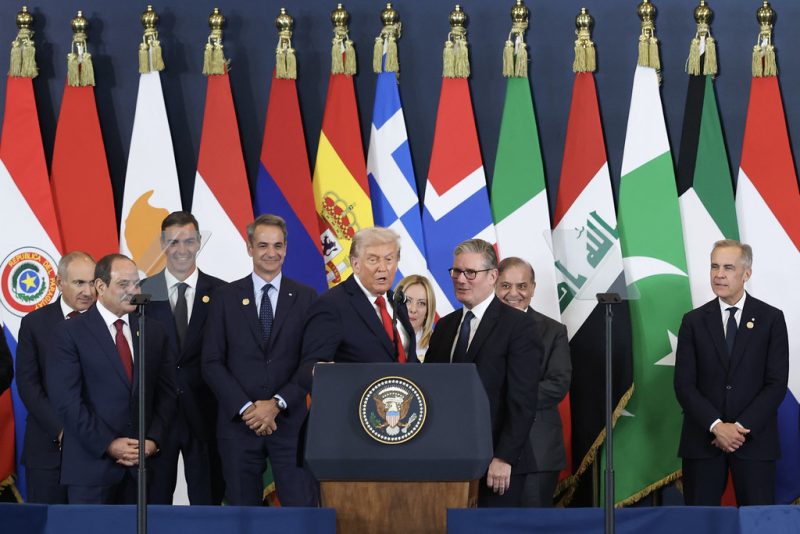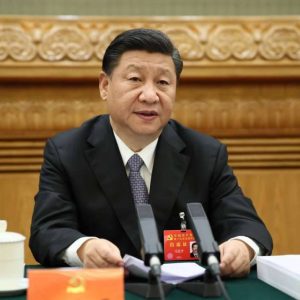China’s Foreign Ministry Spokesperson urged the US, UK and Australia to abandon their Cold War and zero-sum mindset, honour their international obligations..reports Asian Lite News
China’s Foreign Ministry spokesperson Mao Ning claimed that AUKUS trilateral security alliance between Australia, the United Kingdom, and the United States was fuelling military confrontation and creating additional nuclear proliferation risks, according to the statement released by the Chinese Foreign Ministry.
Responding to a media query regarding the UK house hints at the expansion of AUKUS, Mao said, “We always believe that any regional mechanism should be consistent with the trend of peace and development, beneficial to trust and cooperation between regional countries, and not targeted at or harmful to the interests of any third party. Despite being called a ‘trilateral security partnership’, AUKUS is essentially about fueling military confrontation through military collaboration.” “It is apparently driven by Cold War thinking. It creates additional nuclear proliferation risks, exacerbates the arms race in the Asia-Pacific and hurts regional peace and stability. China is deeply concerned and firmly opposed to it,” she added.
China’s Foreign Ministry Spokesperson urged the US, UK and Australia to abandon their Cold War and zero-sum mindset, honour their international obligations and act in the interest of regional peace and stability, the statement read.
According to Sky Australia, Britain has called for an overseeing body similar to NATO to ensure security in the Indo-Pacific.
The chair of the UK’s defence select committee has suggested the AUKUS agreement, a trilateral agreement between Australia, the United Kingdom, and the US that would expand to include India and Japan.
In September 2021, the US announced a new trilateral security partnership for the Indo-Pacific, between Australia, the UK and the US (AUKUS).
The security grouping AUKUS will focus on advancing strategic interests in the Indo-Pacific region. The major highlight of this arrangement is the sharing of US nuclear submarine technology with Australia.
Nearly every one of the nations in this part of the world recognizes the assertiveness and aggressiveness of China.
To deal with China, the US at the recently held Quad Summit in Tokyo launched the Indo-Pacific Economic Framework (IPEF) to offer the region better alternatives to fulfil its developmental goals.
The IPEF will work on fine-tuning four major pillars: standards and rules for digital trade; resilient supply chains; green energy commitments; and fair trade. The Indo-Pacific region has more than half of the world’s population with 2 billion people living under democratic rule.
This region generates a third of the world’s economic output, more than any other region of the World.
Three of the most important allies of the United States namely Japan, South Korea and Australia are located here. More than one-third of the foreign trade of the world takes place in this region.
The world’s largest economies are located in the Indo-Pacific region namely, China, India, Japan, Indonesia, South Korea, Thailand, Australia, Taiwan, Malaysia and the Philippines. (ANI)














